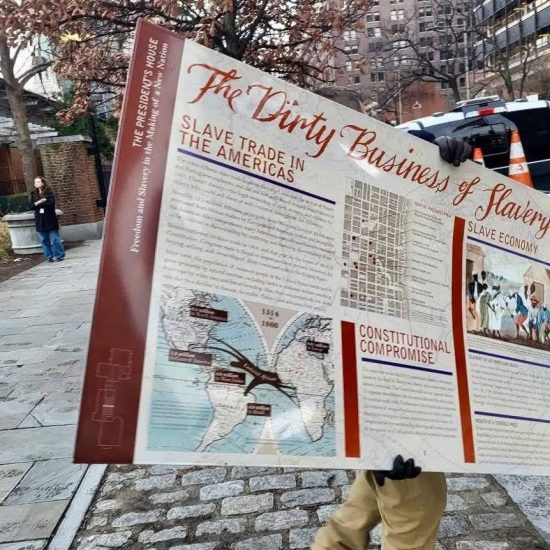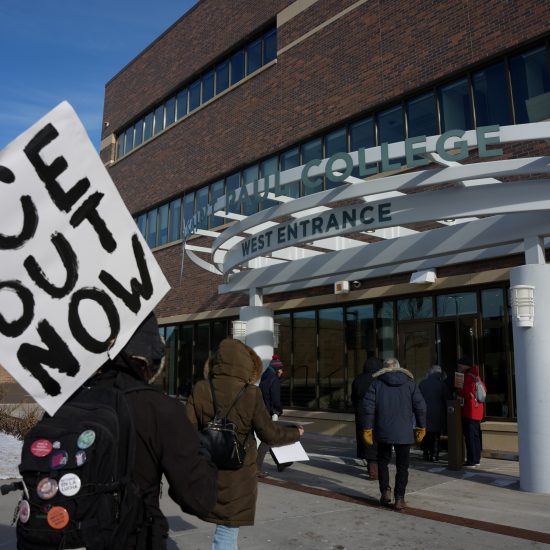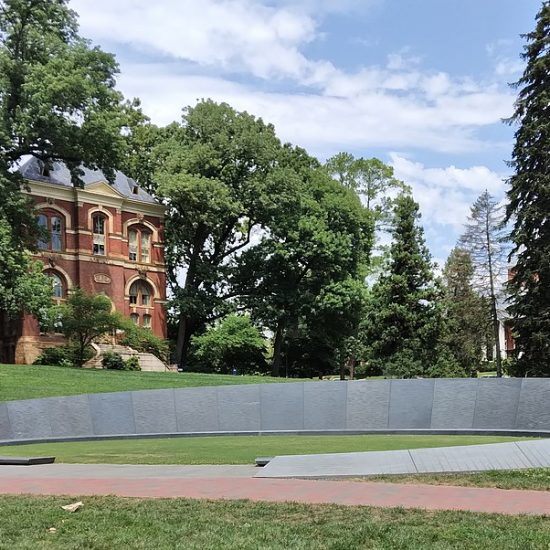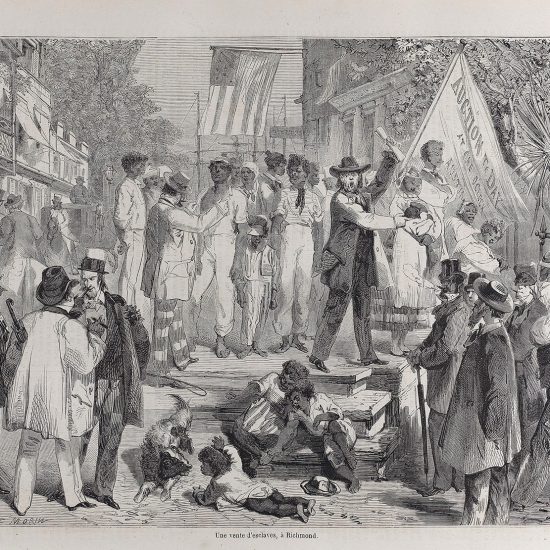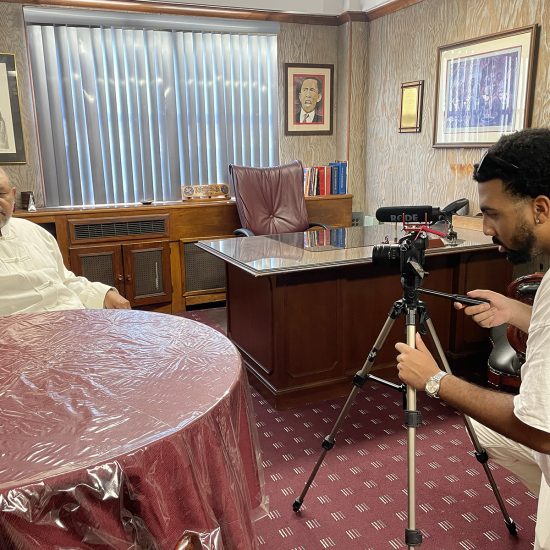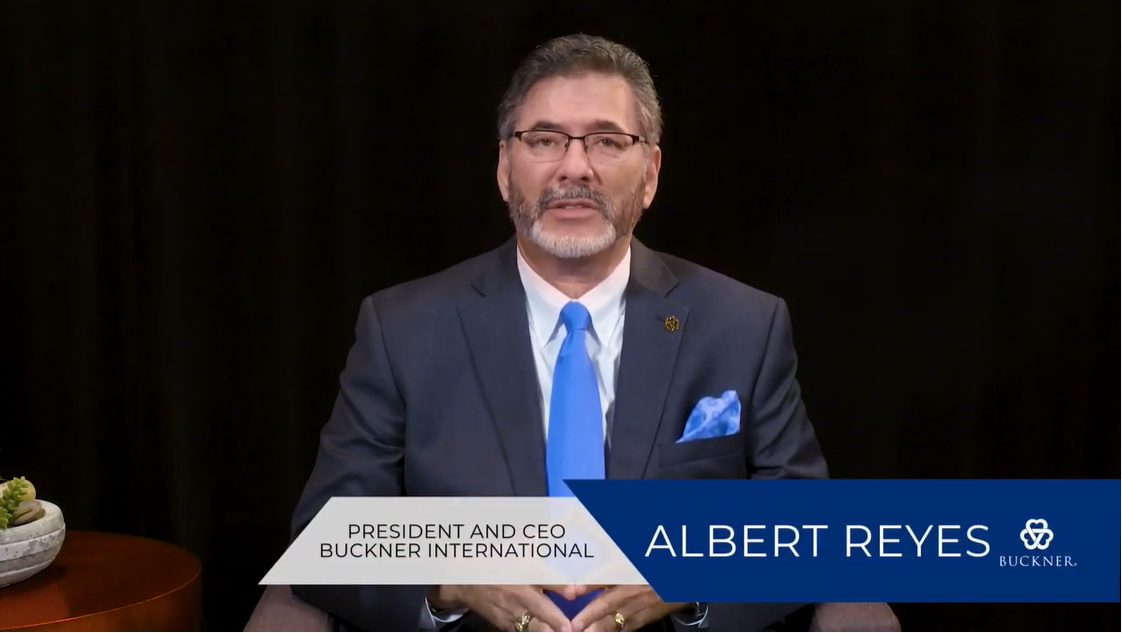
DALLAS (Baptist Standard) — Buckner International, a Baptist charitable organization based in Texas, recently learned 160-year-old records show its long-revered namesake founder, R.C. Buckner, was a slaveholder. The 1860 “slave schedule” for Lamar County, Texas, revealed Buckner — who was pastor of First Baptist Church in Paris at the time — as the owner of an enslaved 16-year-old Black female.
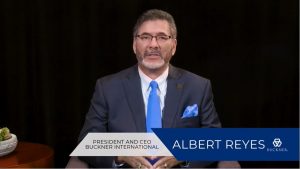
Screengrab as Albert Reyes talks about slavery findings in Buckner International video.
Albert Reyes, president and CEO of Buckner International, sent an email and video to staff last week acknowledging the discovery, and the organization issued a public statement Sept. 2.
“We cannot vindicate history, nor can we vindicate those who lived it. Slavery in America was one of the vilest sins ever perpetuated against humanity. It was wrong, and those who owned other human beings cannot and should not be given a pass. We owe it to enslaved people of the past and their descendants to openly acknowledge this evil,” Reyes stated.
‘Painful’ History Acknowledged
The revelation about “Father Buckner,” as he was known for generations, came as a surprise and as a reminder “that history is indeed painful at times,” Reyes acknowledged.
“For many of us who have revered R.C. Buckner, it is a reminder that Jesus Christ is the only person in human history who lived a faultless life,” Reyes stated. “Scripture tells us to ‘fix our eyes on Jesus, the author and perfecter of our faith.’ Our Buckner mission statement admonishes us ‘to follow the example of Jesus in serving vulnerable children, families, and senior adults.’”
“And while we are disappointed with R.C. Buckner’s human failure, we nonetheless remember the impact of this ministry throughout 14 decades, and we rejoice for those whose lives have been changed,” Reyes added.
Buckner International leaders first learned about the Lamar County “slave schedule” when Editor Brian Kaylor of Word&Way, brought it to their attention.
Kaylor told the Baptist Standard he first began accessing online slaveholding records when he was researching his own church’s history — a search that revealed several of its pastors had been slaveholders. After discovering the online tools, available through services used by genealogical researchers, he said he “randomly” entered the names of individuals related to Baptist institutions on occasion.
“On a whim,” Kaylor said, he searched for information related to R.C. Buckner after Buckner International’s board of trustees issued a statement in July denouncing “racism in all its forms” and affirming the organization’s “commitment to racial reconciliation.”
Historians Investigate
In his email to employees, Reyes noted Buckner’s executive leaders contacted three Baptist historians — Estelle Owens, retired history professor at Wayland Baptist University; Alan Lefever, director of the Texas Baptist Historical Collection; and Karen Bullock with the B.H. Carroll Theological Institute and Buckner biographer — to verify the information Kaylor presented.
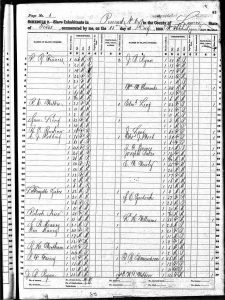
1860 “slave schedule” showing J.C. Buckner as a slaveholder (4th name down on left column).
Owens “conducted extensive research on this issue to confirm the veracity of this document and to understand any context that might explain this surprising information,” Reyes wrote.
“She spent most of three weeks tracking down records and talking with county officials in Kentucky and Lamar County. She visited with librarians and searched scores of online documents,” he continued. “At the end of her work, Dr. Owens concluded that there is nothing to dispute the 1860 slave schedule, and there is no explanation in the historical record.”
Lefever, who serves on a 26-member commission appointed two months ago to study Baylor University’s historical links to slavery, noted “records indicate that many prominent Baptist leaders in the 19th century owned slaves,” Reyes wrote.
Bullock, who wrote her doctoral dissertation on R.C. Buckner, said “while doing her research, she had heard rumors of this (slave ownership), but she was never able to uncover any evidence,” Reyes wrote. “Her work was conducted long before online resources were available.”
Buckner Known as Social Reformer
Based on what is known about Buckner’s generally progressive attitude toward African Americans, Reyes said, Bullock offered three possible explanations regarding the newly uncovered evidence:
- The enslaved female was given to R.C. and Vienna Buckner by her family and then freed.
- The Buckners took the girl into their home when they arrived in Paris in 1860 so that they could free her.
- They did, in fact, own an enslaved Black female for domestic housework.
“Dr. Bullock points out that records show that the Buckners had previously freed slaves they inherited from family members,” Reyes wrote.
In a May 2013 Baptist history column Bullock wrote for CommonCall magazine, she noted Texas Baptists referred to Buckner as “Sir Great Heart,” not only for his philanthropic work, but also for his pioneering leadership as a social reformer — including the area of race relations.
“Buckner served as president of the Baptist General Convention of Texas 20 consecutive years, becoming a respected national voice for the wounded and powerless,” she wrote.
In his public statement, Reyes noted Buckner founded the first Black high school in North Texas, the first orphanage in Texas for African American children and the first Black Baptist association in Texas.
“On his 86th birthday in 1919, the Dallas Express, the oldest and largest Black-owned newspaper in the South, reported that African American friends from across the southwest went to Buckner Orphans Home ‘to do honor to Father R.C. Buckner,’” he stated.
‘Forward Together’
Even so, “those who owned slaves cannot and should not be given a pass,” Reyes wrote in his email to staff. “It was wrong, and we owe it to slaves of the past and their descendants to be honest and truthful.”
 Buckner held a town hall meeting Aug. 31 to discuss the matter and the new organizational initiative, Forward Together: A Plan of Action for Racial Equality, designed to “advance open conversations and actions in response to racial tensions in America” and their impact on Buckner’s staff, its ministry, and those the organization serves.
Buckner held a town hall meeting Aug. 31 to discuss the matter and the new organizational initiative, Forward Together: A Plan of Action for Racial Equality, designed to “advance open conversations and actions in response to racial tensions in America” and their impact on Buckner’s staff, its ministry, and those the organization serves.
“Today, our workforce is comprised of nearly 67 percent non-white staff. We serve an equally diverse population of children and families. And yet we must press on, knowing that numbers alone do not define equality,” Reyes stated.
He quoted Martin Luther King Jr.: “If you can’t fly, then run. If you can’t run, then walk. If you can’t walk, then crawl. But whatever you do, you have to keep moving forward.”
Note: This article was first published by the Baptist Standard and is reprinted with permission.

